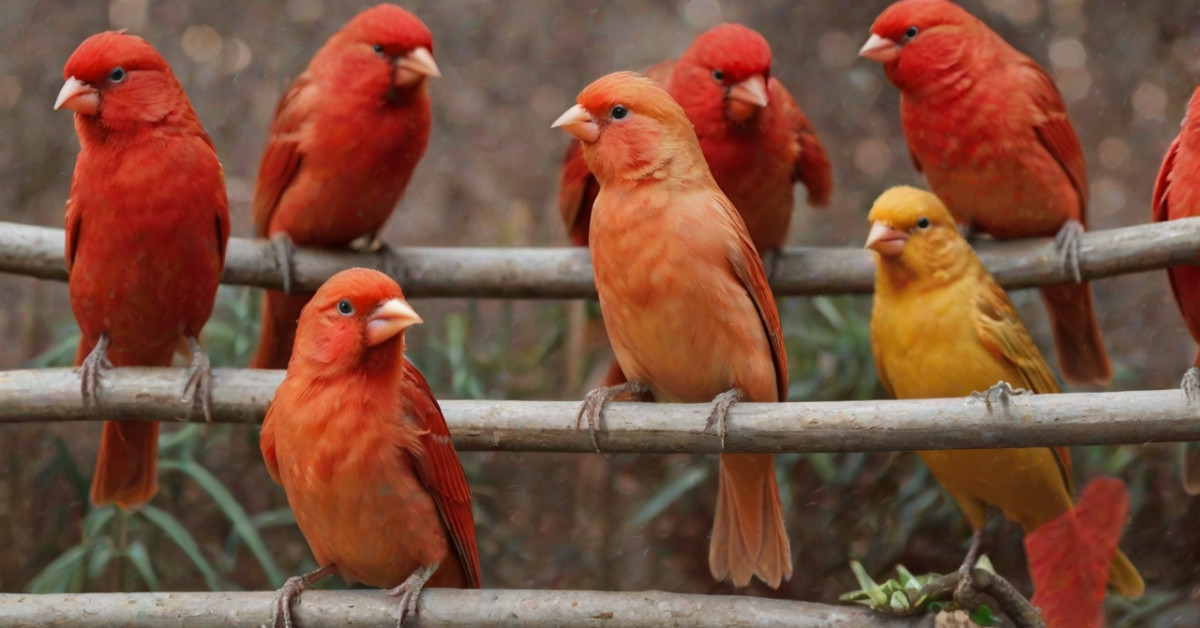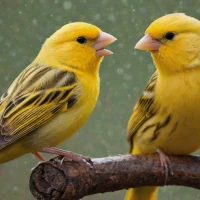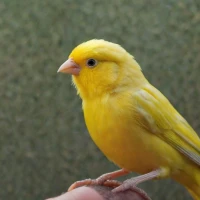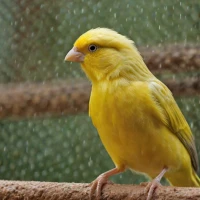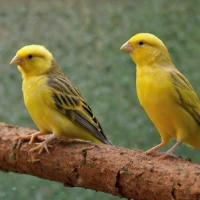The Ultimate Care Guide for Red Canary Birds
Picture this: I’m sitting in my little sunlit study, surrounded by bird books, when my cousin calls me up, frantic about her new pet. She just got a red canary, and she had no idea how to take care of it. Oh, the struggle! But don’t worry, we’re diving deep into everything you need to know about these stunning creatures.
The Enchantment of Red Canaries 🐦
First off, red canaries aren’t just ordinary birds; they’re real eye-catchers. Their vibrant feathers can make anyone’s day brighter. These birds are like tiny jewels that sing! Fun fact: Did you know the red canary is actually a selectively bred version of the common canary? Amazing, right?
Understanding Their Habitat
Alright, let’s talk about where these beauties should live. Red canaries need space - not just any space, but a comfy, clean, and well-ventilated cage. Think of it as their little mansion. When I bought my first canary, I was clueless. I thought any old cage would do. Boy, was I wrong! They need more than just a small enclosure; they crave room to flutter around.
The ideal cage should be, at the very least, 18x18x18 inches. Larger if possible. And remember - horizontal bars are better as they love to hop around.
Cage Placement
Place it in a spot where there’s ample light but not direct sunlight. You wouldn’t want your lil’ buddy getting too hot, right? Avoid drafty areas; these delicate creatures can easily catch a cold. Oh, and don’t forget to keep them away from the kitchen because cooking fumes can be harmful.
Feeding Your Red Canary
Feeding these birds is both simple and complex. Simple, because they thrive on a diet of seeds, fruits, and veggies. Complex, because balance is key. Once, I overfed my canary on seeds. It got a bit pudgy, not ideal.
Seed Mix
A quality seed mix is crucial. Something with a blend of canary seed, millet, and canola seed usually does the trick. Just remember, seeds alone aren’t enough.
Fresh Fruits and Veggies
Introduce fresh fruits and veggies gradually. Apples, berries, spinach, and carrots are some good choices. But a word of caution - avoid avocados, as they’re toxic to birds. Trust me, I learned it the hard way.
Protein and Supplements
A boiled egg now and then provides essential protein. And don’t forget to sprinkle some bird vitamin in their diet. It’s like their daily multivitamin!
Ensuring Their Mental and Physical Health
Red canaries are pretty social. They need mental stimulation to stay happy. One thing I love doing is placing mirrors and bird-safe toys in their cage. It’s adorable to watch them interact! You’ve gotta see it to believe it.
Bathing
These birds are neat freaks. A shallow bird bath in their cage allows them to splash around, and it’s beyond delightful to watch. Alternatively, a misting bottle works wonders. A little surprise for you - ever watched a bird enjoying a shower? It’s sheer cuteness!
Singing
Male canaries are known for their singing. It’s their way of expressing happiness. Ensure there’s a peaceful environment because noise can stress them out - and hey, nobody likes a stressed bird, right?
Breeding Red Canaries
Considering breeding? It’s not for the faint-hearted. It requires patience and a proper environment. You need a separate breeding cage, and be ready for some sleepless nights watching over the eggs.
Nesting
Place a nesting box in the cage. Lined with soft materials like tissue or unscented paper. The female usually lays 3-5 eggs and incubates them for about two weeks. Mark your calendar because it’s a waiting game.
Raising Chicks
Once the chicks hatch, it’s a sight to see! But keep in mind, the parents will feed them. Just ensure there’s plenty of food available. The chicks will fledge in about 3 weeks but keep an eye; some might need a little nudge.
Keeping Your Red Canary Healthy
Health check-ups are crucial. Regular vet visits can prevent common canary ailments. From mites to respiratory issues, it’s essential to catch them early.
Common Ailments
Look out for signs of illness like fluffed-up feathers, loss of appetite, or lethargy. These could be red flags. A quick vet visit could be a lifesaver.
Maintain Hygiene
Cleanliness is next to godliness, they say. Change the cage liner weekly and ensure fresh water daily. I used to neglect this, and let me tell ya, a smelly cage is no fun.
Fun Facts About Red Canaries
Ready for some random tidbits? Red canaries get their color from carotenoids in their diet. Fancy, huh? And another one - they have a lifespan of about 10 years if well cared for. That’s a decade of joy!
Personal Reflection and Final Thoughts
Overall, raising a red canary is a rewarding experience. They bring a piece of nature into your home and fill it with song and color. I recall nights spent just listening to my canary’s melodies, finding a strange sense of peace.
In closing, I hope this guide enlightens and assists you in your journey with these wonderful birds. Thank you for sticking around. If you’ve got any questions or stories, I’m all ears! 🐤
Remember, “A happy canary is a singing canary!”
